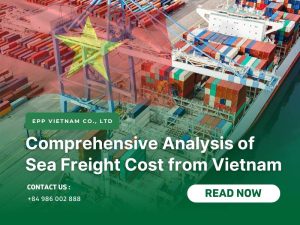
In recent years, global sea freight has undergone unprecedented volatility and transformation due to various factors such as politics, changing trade policies, and supply chain disruptions. Vietnam, as a rapidly

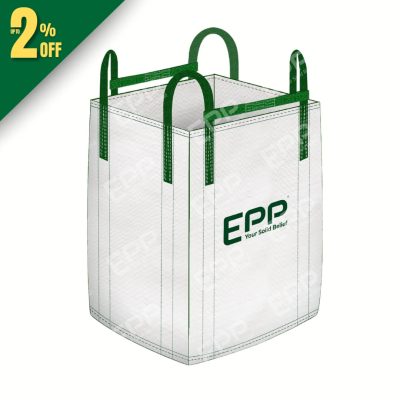

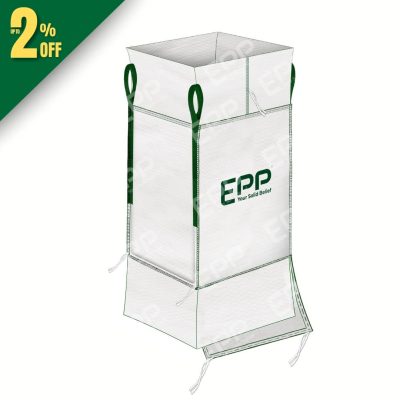





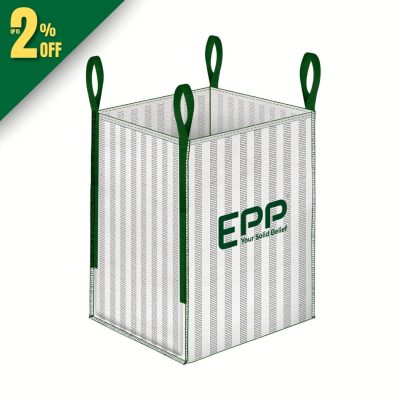

FIBC bags, also known as Flexible Intermediate Bulk Containers, are large, durable bags designed for storing and transporting bulk materials. These versatile bags have gained immense popularity in various industries due to their ability to hold significant quantities of products while maintaining safety and efficiency. Understanding bulk bags’ features, advantages, applications, and types is essential for businesses looking to optimize their packaging and logistics processes.
FIBC bags are large, flexible bags made from woven polypropylene (PP) that can hold a wide range of dry bulk materials. They are commonly referred to by various names, including Bulk bags, Jumbo bags, builder bags, tonne bags, ton bags, super sacks, or sacos big bag. Big bags are designed to be robust and can typically carry loads ranging from 500 kg to over 2,000 kg, making them ideal for transporting heavy materials.
The design of jumbo bags allows for easy handling, filling, and discharging. They can be filled using a top opening and discharged through a bottom spout or a flap. Their lightweight and collapsible nature makes them an efficient choice for storage and shipping, as they take up minimal space when empty.
Ton bags offer several significant advantages that make them an attractive option for businesses involved in bulk material handling:
Heavy-duty big bags are used across various industries due to their versatility and efficiency. Here are some common applications:
FIBC bags come in various types, each designed to meet specific needs and applications. Here are the most common types:
Standard big bag, often referred to as Type A bulk bags, are the most commonly used type of FIBC bags. They feature a simple design with four lifting loops, making them easy to handle and transport. These bags are versatile and suitable for a wide range of materials and applications, including agriculture, construction, and general bulk storage.
Type B jumbo bags are designed to handle bulk materials while minimizing the risk of combustion. Unlike standard bags, they have a design that prevents dust accumulation and reduces the risk of static electricity. These bags are particularly useful for storing non-conductive materials and are ideal for applications where safety is a priority.
Conductive FIBC bags, or Type C bulk bags, are specifically designed for transporting flammable materials. They are made from materials that dissipate static electricity, which is crucial for industries dealing with hazardous materials. By preventing static build-up, these bags help minimize the risk of ignition during transport and handling, making them essential for safety in environments where flammable powders and chemicals are present.
Type D bukk bags are designed to be anti-static and can safely dissipate static charges without the need for grounding. This makes them suitable for use in environments where static electricity might pose a risk. These bags are often used for transporting flammable powders and chemicals, offering an added layer of safety during handling and transportation.
Food-grade FIBC bags are manufactured using materials that comply with food safety regulations. These bags are specifically designed for transporting food ingredients, ensuring that the contents remain safe for consumption. They are commonly used in the food industry for products such as grains, sugars, and other bulk food items, adhering to strict hygiene standards to prevent contamination.
FIBC bags are a versatile and effective solution for bulk material handling across various industries. Their outstanding advantages, such as high load capacity, durability, and cost-effectiveness, make them an attractive choice for businesses looking to optimize their packaging and transportation processes. Understanding the different types of FIBC bags and their applications can help companies select the right solution for their specific needs.
Whether you’re in agriculture, construction, chemicals, or food production, FIBCs can provide the reliability and efficiency required for successful operations. By investing in the right FIBC bag, businesses can enhance their logistics and improve overall efficiency, ensuring their products reach their destinations safely and cost-effectively.

With our 20-year experience in manufacturing and exporting, EPP Vietnam Co., Ltd. was established to bridge the gap between manufacturers and customers and become a leading supplier in Vietnam’s plastic packaging industry. Our mission is to provide a comprehensive range of plastic packaging products, including FIBCs (Types A, B, C, D, Fras type C bulk bags, Food Grade bulk bags, UN big bags, Ventilated bulk bags, and Mesh bags), PP woven bags, Kraft paper laminated PP woven bags, BOPP bags, agricultural films, PE liners and PE tarpaulins.
We have successfully exported high-quality products to markets in Australia, New Zealand, the United States, Canada, Germany, Norway, Portugal, Africa, UAE, Chile, and other countries with Stable quality, Competitive prices, and Professional services.
EPP Vietnam can currently supply 6 million products annually, underscoring our commitment to meeting customer needs.
With a quality management system according to internaional standard such as ISO9001:2015; ISO14001:2015; ISO22000:2005, HACCP; FSSC22000; BRC; Test Report for each product....and our professional quality check team, we are committed to bring to our customers outstanding products with “Stable Quality”.
With the product control norm system and having good relationships with manufacturers, we can seek each factory’s advantageous products and combine them to meet customers' product diversification needs for each order with a “Competitive Price”.
We guarantee to provide customers with “ Professional Service” such as Mix items into 1 container and ship to customer's port, Consulting on exact product specifications, Quoting within one working day, Maximum leading time of four weeks for each order, Shipping to the customer’s port, Diverse payment methods (TTR, L/C...); Resolve complaints within one week working and always listen to customers’ feedback.
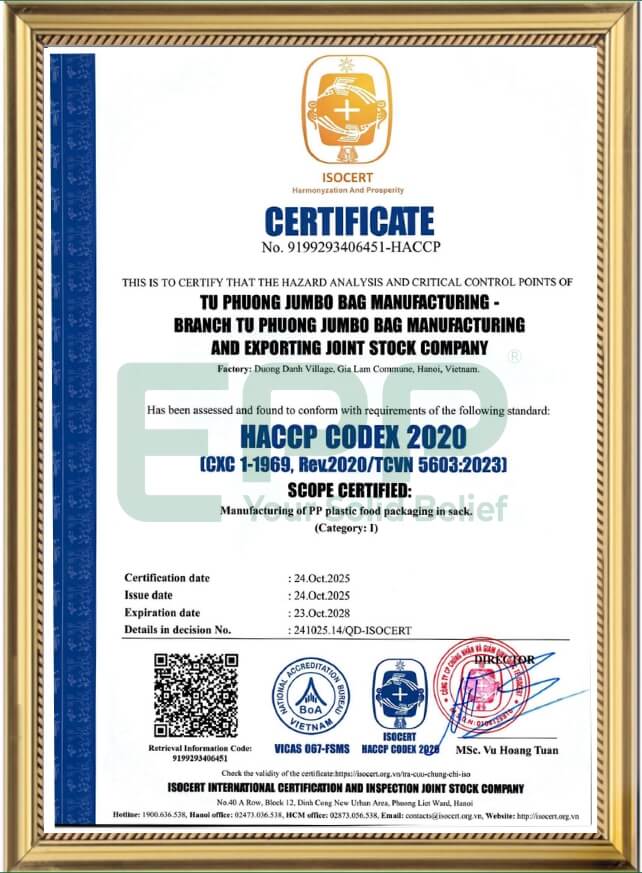
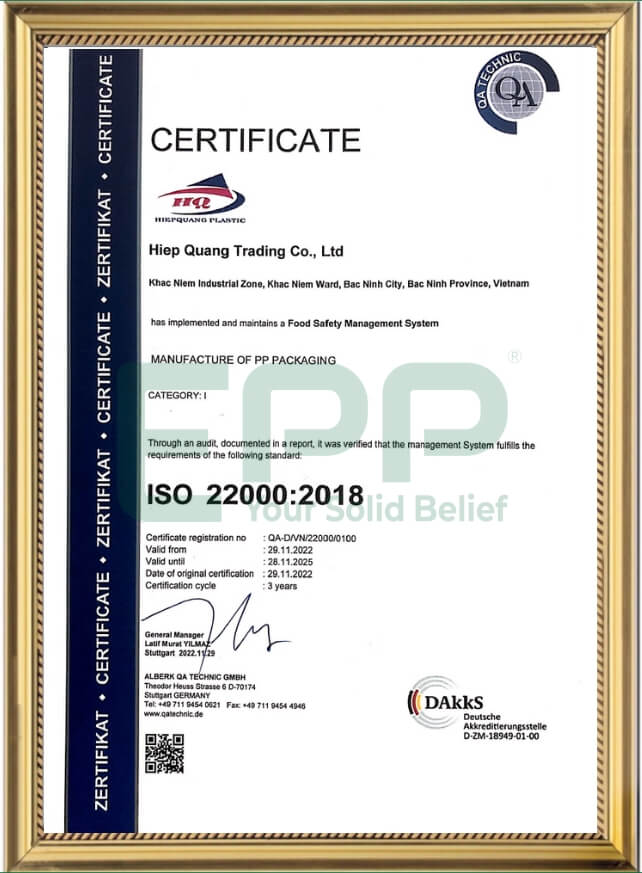
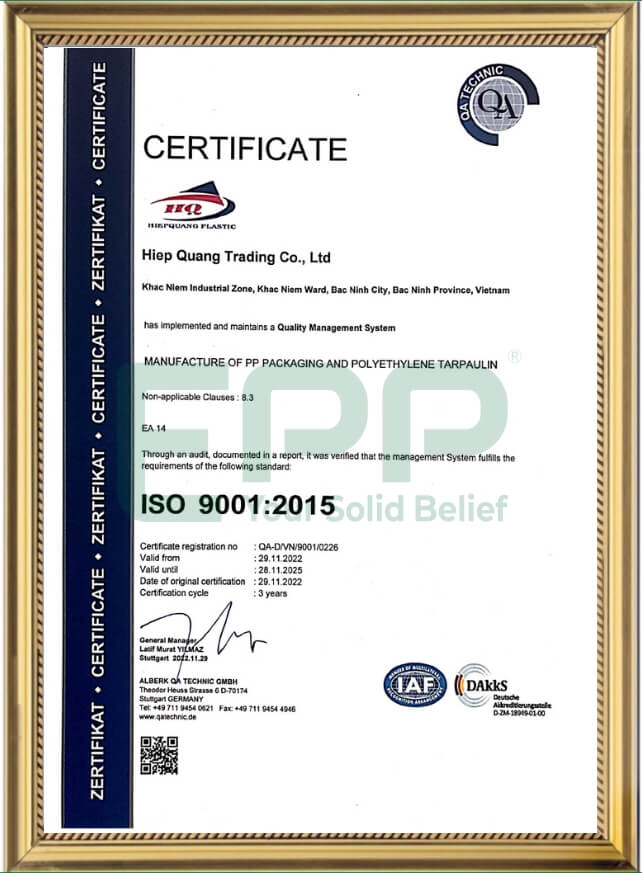

In recent years, global sea freight has undergone unprecedented volatility and transformation due to various factors such as politics, changing trade policies, and supply chain disruptions. Vietnam, as a rapidly
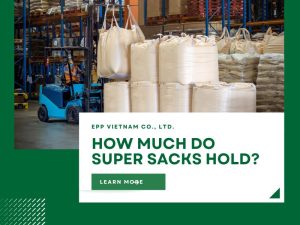
If you handle bulk materials—from fine chemicals and fertilizers to sand and grains—you rely on Super Sacks (officially, Flexible Intermediate Bulk Containers or FIBCs). These industrial bags are designed for

In the food industry, reputation and safety are everything. One illness outbreak can close a business, trigger massive recalls, and permanently destroy consumer trust. This is why the Hazard Analysis